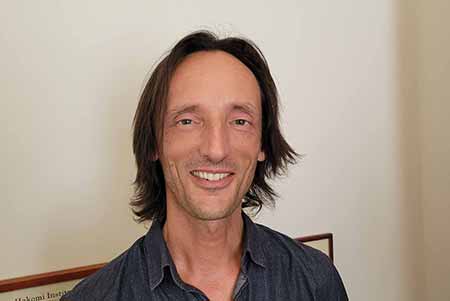A simple question. Does Somatic (meaning the felt sense of the body) therapy work? Has somatic therapy been researched and can it be scientifically shown to work?
There are many studies which show that somatic therapy is effective, and there is also “meta-analysis” i.e. analysis of a variety of studies supporting it.
A recent review of research into body psychotherapy shows that there is a growing body of empirical evidence about the results of this type of therapy. This review finds that the evidence shows “generally good effects” on “depressive and anxiety symptoms, somatisation and social insecurity”. It also shows good results in treating schizophrenia. 1 A multi-centre study showed “significant improvement” after a brief course of therapy. It went onto show that longer term therapy produced “a large effect on all scales”. “These results are lasting according to follow up data”. 2 It is an area which would benefit from further research, but the science so far is very positive and, as I discuss below, the scientific theory which justifies it as an approach is strong.
Peter Levine’s work, Somatic Experiencing, has involved a great deal of research into why working somatically is a good idea. Very briefly, he shows how both animals and humans hold trauma in our bodies and primarily also release it through our bodies. This gives a strong theoretical underpinning to working somatically. His work on trauma, along with Pat Ogden’s work, Sensorimotor Psychotherapy, is mentioned a great deal in literature on working with trauma. In the field of trauma, both their work is becoming widely recognised as a key development in the approach to trauma.
In terms of scientific underpinnings, the acclaimed neurologist, Antonio Demasio’s, work on the somatic marker hypothesis suggests that much of our decision making is made on a bodily level. He also provides a lot of scientific evidence suggesting that even our sense of self is based on our felt sense of our bodies.
So somatic therapy has been shown to be effective in its results, and also has a strong theoretical base.
Books to look at include:
- Peter Levine “In an unspoken voice, Healing Trauma”
- Pat Ogden “Sensorimotor Psychotherapy: Interventions for Trauma and Attachment”
- Antonio Demasio “Descartes Error”
Details of the studies:
- Title: Body-oriented psychotherapy: The state of the art in empirical research and evidence-based practice: A clinical perspective.
Journal of Body, Movement & Dance in Psychotherapy, 2009, Vol. 4, No. 2, pp. 135-156.
Author: Röhricht, F.
Available from: http://www.eabp.org/docs/BOPT%20State%20of%20the%20Art.pdf
- Title: Evaluation of the effectiveness of Body Centred psychotherapy in out patient settings: A multi centre study in Germany & Switzerland.
Journal: Psychotherapie Psychosomatik medizinische Psychologie
Volume 56, 2006, Pages 480-487
Authors: Koemeda-Lutz, M., Kaschke, M., Revenstorf, D., Schermann, T., Weiss, H., & Soeder, U.
English translation available from:
http://www.hakomiinstitute.com/Forum/Issue19-21/12EABPresearch.art2.pdf
- There is a more recent review of the literature here, titled “The effectiveness of body-orientated psycotherapy: A review of the litereture”:
- And a specific look at PTSD and Somatic Experiencing here:
https://www.ncbi.nlm.nih.gov/pmc/articles/PMC5518443/
- Further research articles on the subject are listed here:
http://www.eabp.org/research-evidence.php
Book a session, or click here to read about my approach to somatic therapy.



 Ajay Hawkes
Ajay Hawkes

